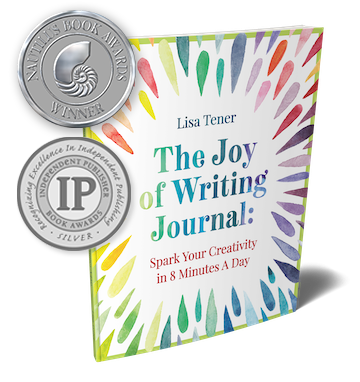
Today, I received two e-mails from two different Bring Your Book to Life Program participants asking whether they should have a collaborator write a chapter in an area where the author does not have as much expertise. As I wrote to the second author, I realized that I’d heard–and answered–this question more than once and perhaps many of my blog readers could benefit from my answer, so here it is:
I’m convinced that my first book–The Ultimate Guide to Transforming Anger— would never have been published were it not for my co-authors. Peaco Todd helped me see a bigger vision of what the book could be–one that would appeal to a much wider audience. Her cartoons also made the book a million times more powerful and fun to boot.

We still had trouble finding a publisher or literary agent, because we weren’t anger experts. Collaborating with Jane Middelton-Moz not only made our book publishable, but it made it better, because of her depth of expertise on the subject and the stories that made the book come alive.
Here are 7 “Pro’s” for writing a book with a collaborator/co-author:
1. VALUE: Potentially, you can write a better book that provides more value, wisdom, expertise, fun, accessibility, real life examples, etc. for readers.
2. CREDS: The book will have more credibility if your co-author possesses expertise you lack.
3. TIME SAVINGS: You have less to write.
4. PROMOTION AND SALES: Additional authors can provide more man- or woman-power to promote the book and reach more people. Jane continues to hold anger workshops and seminars (which I do not) and it’s due to Jane that our book continues to sell and I get a royalty check every quarter.
5. CONNECTIONS: Your co-author may also provide connections that you do not have. In our case, Jane had published ten books at the time with Health Communications, so it was easy for her to present our book proposal and get a “yes” from her publisher.
6. RELATIONSHIPS: When our book came out, there were issues with the dimensions and cover. Book stores would not stock the book, despite the great publicity we were getting. Because of Jane’s long term relationship with the publisher, they agreed to re-publish with a new title and ISBN number (so it would be considered a new book) in order to capitalize on our PR and actually have the book in stores. Without this relationship, our book would have been dead in the water–these were the days before Amazon was as big as it is now. Bookstores were still the main way books got sold. It’s hard to say what relationships your co-author may have that can help the book, but this is something to consider.
7. SUPPORT: It can be motivating to work with a co-author. You can write the book faster and more efficiently. You can help each other get past any blocks, as my co-authors and I did several times.
Sounds great, right? It can be. But are there any “cons” to be aware of? Absolutely. In fact, I know someone who ended up throwing out the original 3,000 copies of her book and starting over with a new title and ISBN number, not to mention hiring a lawyer, when she discovered that her co-author had plagiarized his section of their book.
That’s your worse case scenario, but other challenges can arise. Here are some of the “cons” or just issues to be aware of and work to prevent:
1. CONFLICT: Not all conflict is bad. Sometimes hashing out a difference of opinion will lead to a better book. However, to avoid unproductive conflict be sure to have a written understanding of how you will resolve conflicts and address differences of opinion. Also choose your co-author / collaborator wisely.
2. MISUNDERSTANDINGS: You may think you’re on the same page about issues but you don’t want to wait until a crisis to realize you’re not. Think of all possible scenarios for writing, editing, publishing and promoting the book. Address your expectations ahead of time. I promise another post shortly on issues to consider to prevent misunderstandings–the list is extensive.
3. LIMELIGHT: If you hire a publicist, how do you decide who gets the big opportunities? Sometimes you may be able to be interviewed together but many times, the newspapers or talk shows want one person. How do you decide who gets what? And who should be “pitched” for which opportunities?
4. MONEY: Have a very clear sense of how you’ll pay expenses. The author above footed the bill for many items and when she did open a bank account with her co-author, he cleared it out. Yikes. Pay attention to red flags. If you are equal collaborators, share expenses from the get-go so one person doesn’t end up contributing more than the other.
5. TONE and VOICE: Ideally, the tone and voice of a book should be fairly even. If a collaborator writes one chapter–or many–can you have the tone match yours well enough so it “fits”? Do you need someone to help the two of you match tone? Alternating voices may work if you alternate chapters, but if your collaborator only writes two it may just feel clunky unless the tone and voice match.
6. CONSISTENCY: It may feel odd to readers if the chapters are too different from each other. Can you match the structure of the chapters? Will readers feel thrown to suddenly read a chapter by someone else? Or will it be refreshing–and instill confidence–to read the chapter by an expert on that chapter’s subject? Explore the reader experience by asking some potential readers.
7. LIABILITY: What if your co-author plagiarizes? What if they do something that compromises the book project legally? Be sure to do your homework on the person before collaborating. Do a “google search” on them. Ask colleagues about them. Also, have your collaborator meet trusted friends or colleagues of yours and see if they get any red flags. Listen if they do, even if you are excited about the potential collaborator.
8. OWNERSHIP: It’s a joy to own something with someone you love and enjoy–whether it be a home, a boat or a book. But what happens if things go sour? Can you still teach workshops on the topic if you developed those workshops with a co-author you no longer speak with? Or even if you are on speaking terms, do you need to pay your co-author to use teaching materials you developed together? Be sure to develop clear expectations in writing for such possibilities.
As you can see, collaborating with a co-author has many benefits. Just choose wisely, do your homework, listen to your intuition and be very clear about expectations. Also explore ahead of time how having different authors might affect the reader experience.
2016 Update: Since writing this post, I have developed a checklist of 17 Questions to Answer with a Co-writer or Collaborator. These questions will help you determine whether you share the same vision and expectations and whether your co-writer or collaborator is an ideal fit for you and your book project.
Have a question about co-authoring or collaborating on a book? Or do you have an experience to share? Please share your comments below.
Other Collaborative Opportunities for Authors
2022 Update: I recently published a new book, The Joy of Writing Journal, Spark Your Creativity in 8 Minutes a Day, which has won three prestigious 2022 book awards to date: The Nautilus Book Award, The Independent Publisher Award (IPPY) and the National Indie Excellence Award.
Even though I wrote this book on my own, the process was still quite collaborative:
- More than half a dozen beta readers tested the material and provided feedback; their comments helped me enhance the book tremendously.
- I hired an editor for fine tuning.
- I recruited dozens of authors, book coaches, writers and journalists to share their reactions to the prompts by video and incorporated the videos into the book through QR Codes.
In this way, creating the book was highly collaborative. Some of the authors and writers featured in the videos also helped share the book with their communities, helping me reach more readers.
Thus, if you prefer not to co-author a book, but enjoy collaboration, you can find other creative ways to collaborate.




Absolutely invaluable information Lisa! I’d also like to add two other cautions to anyone who is considering either a Co-Author or Contributor.
1. It’s very exciting to write a book, and it makes perfect sense to enlist someone with added expertise to bolster your book’s credibility. No doubt the person will feel flattered to join you on that journey. But if it’s your book to begin with, you need to make sure you ask for a writing sample! Co-authors who hold high positions in their field, e.g. doctors, CEOs, celebrities, can come with an ego that matches their lofty position, and that in itself may delude them into thinking they can also write. When you discover they can’t put two sentences together and you’ve already signed an authors’ agreement—not to mention any financial commitments—you will end up doing all the heavy lifting for them.
2. Make sure you are clear as to whether you are enlisting a Joint Author, a Co-Author, or a Contributor. This designation will directly impact your copyrights and should be identified in your copyright application as well as your author agreement.
With God’s help, my friend and I have co-authored a stand alone cozy mystery and a romance trilogy. It seems we balance each other with our values, morals and insights. The way we think, reactions and personalities form unique voice in our books.
That sounds so fun! Collaboration can be an especially gratifying way to work!